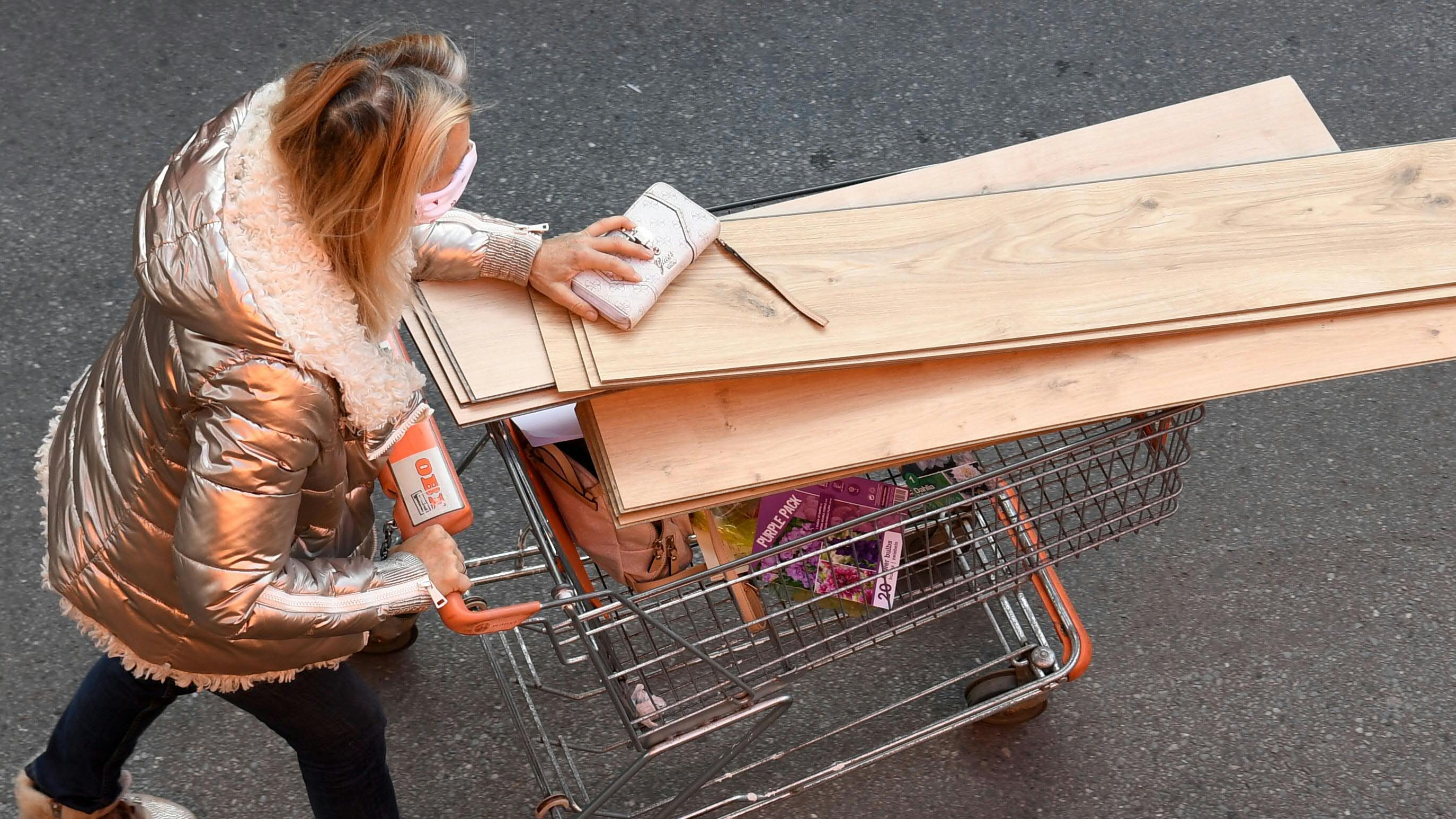
- Select a language for the TTS:
- UK English Female
- UK English Male
- US English Female
- US English Male
- Australian Female
- Australian Male
- Language selected: (auto detect) - EN
Play all audios:
DIY enthusiasts may have to put off any new projects until after the summer, as a major shortage of building materials leaves suppliers struggling to meet demand. Cement, timber, steel,
paint and electrical components are increasingly difficult – if not impossible – to source, causing problems not just for those looking to carry out home improvements, but for building firms
too. Building firms could be forced to delay projects or even close down, says The Construction Leadership Council, which blames “unprecedented levels of demand” for the situation, which it
says is likely to “continue for the foreseeable future”. SUBSCRIBE TO THE WEEK Escape your echo chamber. Get the facts behind the news, plus analysis from multiple perspectives. SUBSCRIBE
& SAVE SIGN UP FOR THE WEEK'S FREE NEWSLETTERS From our morning news briefing to a weekly Good News Newsletter, get the best of The Week delivered directly to your inbox. From our
morning news briefing to a weekly Good News Newsletter, get the best of The Week delivered directly to your inbox. Roland Glancy, managing director of design service Peek Home, warned
consumers to delay home improvement projects “until autumn”. “The last thing you want is to knock through a wall and then struggle to get hold of a bag of plaster to complete your vision
leaving you living in a building site, just when we should be enjoying our new freedoms,” he told the BBC. WHY IS THERE A SHORTAGE? Huge demand from consumers keen to start their DIY
projects since the easing of lockdown restrictions is just part of the problem, exacerbating existing supply issues. Another factor is a thriving housing market, “which recorded its
strongest April sales for 14 years last month”, reports the Daily Mail. The surge in demand has led to a “building boom”, with demand for builders rising at the fastest rate in a decade and
suppliers facing “incredible pressure”, says the paper. Indeed, demand in the home improvement, repair and maintenance markets is 19% higher over the same period. Timber is one of the
materials in shortest supply, according to the Construction Leadership Council, and one of our biggest imports into the UK, as British wood is not of the right quality for construction. Warm
weather in Scandinavia has affected timber production, meaning that the small amount of timber coming into the UK has already been pre-sold. High demand for wood internationally has also
seen other economies “prepared to pay more than Britain”, according to the Builders Merchants Federation. This is on top of an already increased demand for the use of wood during
construction, as architects and the construction industry “focus on incorporating as many net-zero products as possible”, said The Times. Shipping issues are also a major factor behind
shortages: while the UK produces around three-quarters of its building materials, many are imported. Products such as paint, polymers and finished goods, as well as raw materials like timber
and copper are often sourced from abroad and need to be shipped to the UK. The Times says “post-Brexit frictions at the ports” have hampered the arrival of these materials, with delays then
exacerbated by a shortage of shipping containers due to Covid-19, combined with a sharp rise in global demand. This means shipping rates have been pushed up: the cost of shipping a 40ft
container from Asia to Northern Europe soared from $1,500 (£1,061) in summer 2020 to more than $8,300 (£5,873) by May 2021, according to the BBC. In many ways, the UK is facing a perfect
storm of issues: increasing global demand for materials creates a struggle to import raw materials into the UK, ever-lengthening lead times for orders, and rocketing prices. The Office for
National Statistics expects a rise of 7-8% in prices for materials, with increases for certain materials, such as timber, expected to more than double this year. WHEN WILL THINGS IMPROVE?
The Construction Leadership Council has warned that the availability of certain materials would “worsen before it improved”, and is expecting strong demand to continue over the next six
months. High shipping costs are “likely to subside in the next three to six months”, reports the BBC, although increased global demand for building materials could remain high for the next
nine months – making it likely that the UK will be facing shortages for some time yet. Explore More COVID-19






